Thom Evans: The Survivor
Thom Evans: The Survivor
Share
Former Scotland rugby international and Strictly contestant Thom Evans knows what it takes to survive. Having recovered from a potentially fatal injury on the rugby field, he’s now testing himself in the island with Bear Grylls…
You used to play professional rugby and now work as a model, so explain what your current training involves…
Well, I was used to certain training regimes when I played rugby and after that I did a lot of sprint work, so these days I take bits from both worlds to create a routine that works for my current needs. I do some weights sessions and mix those with sprint sessions in an attempt to stay toned. Ultimately, I want my exercise to be enjoyable. Some people enjoy long-distance running and find it therapeutic, but that’s how I feel about sprint work. I love that it involves short, sharp distances and can be done anywhere. Sprinting is intense. I like the odd workout, but I’m not one to tie myself in to three gym visits a week. That’s not fun.
Anyone who follows your Instagram account will know that you’ve maintained your physique, but you’re leaner now than when you played rugby. How have you achieved that?
A lot of the work I was doing when playing rugby involved bulking up to take the knocks you get in the sport. Also, a lot of the training was geared up to help us stay injury-free. However, I now feel better than I ever did playing rugby. I feel more athletic and toned. I put that down to things like the sprinting, but also boxing and swimming. I like to mix things up. It’s funny, if I see any of my old rugby mates they think I’ve lost weight and look quite thin. However, I feel in better shape than ever, and I feel better in myself.
How has your approach to fitness changed since you stopped playing rugby?
Well, I’m now able to train more now because I’m not injured as much as I used to be! You used to get so many knocks, if it wasn’t a dead leg, I’d have an injured shoulder. Also, I used to struggle to put on the weight I needed, so I used to have to have a lot of protein shakes, which I didn’t really enjoy at the time. I don’t do that now. I take a bit of magnesium and vitamin c, but that’s about it. I don’t miss feeling bloated!
Do you find it hard staying motivated to keep fit now you’re not a professional sportsman?
I think training back then as a rugby player was much more of an addiction. It was about gaining added strength, and I guess it’s harder to stay incentivized when you’re not in that team environment, or not preparing for an event each week. That’s why I do a boxing class. It’s not the same, of course, but it’s a team environment and that can help push you along. One of my friends is a personal trainer and I also use him to help me when I need it. It is harder to stay motivated, so you just need people to give you a push from time to time.
Presumably, as a model, you now face a different kind of pressure to stay in shape?
It definitely helps having my physique when it comes to modelling. And because I’m leaner than before, I can now get my arms, legs and chest into the clothes I’m modelling, which used to be a bit of a struggle when I was bulkier! I find now that my body is more proportionate. When you’re playing rugby you need strong arms and legs, but that can distort your body.
You’re on our screens in October as part of the new series of The Island with Bear Grylls. Was that difficult?
It was a big experience. I like to eat a lot and I can get grouchy if I miss a lunch or dinner, but on the show you have to survive without eating a lot, sometimes going days without food. It’s incredibly hard to function without that calorie intake. I used to watch the show and think, ‘why aren’t they doing this or that?’ but until you’ve done it, and tried to make decisions without the necessary nutrition, it’s very hard to imagine what it’s like. It was really hard, but I like pushing beyond my comfort zone, and it certainly tested me physically and mentally. Essentially, you’re on an island without food and trying to function with very little sleep, with people you’ve never met before. It’s an extreme environment. Now, I’d love to go out for a drink with all the people who were on the show, but when you’re all trying to function on the bear minimum, things can be difficult!
Did you have to train for the show?
We had two days to train with Bear’s survival specialists, but it was more about what you could eat and how to survive being bitten by insects than anything else. I’m a big fan of Bear and I got to meet him briefly on the island. He’s a hell of a guy and now that I’ve done what I’ve done, I have more respect for those who survive and who can operate on nothing. You have to really dig deep and pick yourself up all the time.
Mark Wright used to have a column in this magazine and he would talk about how hard Strictly was. Would you agree?
Very much so. I’m not an adrenaline junky, but doing things like that are a step into the unknown. I got quite pally with Mark and I thought he was remarkable. He wouldn’t mind me saying he really couldn’t put one foot in front of the other, so to get as far as he did was an amazing improvement and I think people liked to see that progression. He worked so hard, when he sets his mind to something he really goes for it.
I found it very diffucult. When I was at school I used to find it hard concentrating for 20 minutes. This was hour after hour of learning new things under the pressure of knowing you only had four days to learn something you would have to perform in front of millions of people. I had to use an ice bath in the evenings because my legs were killing me. Rugby was all about hunching, where as Strictly involved a straight posture, a lot of stretching and standing on your tiptoes.
You seem to love a challenge. You overcome one of the biggest of all when you recovered from your life-threatening injury…
I learned a lot of lessons from that experience [Thom injured his spine and neck in a collision playing for Scotland against Wales], principally how life can change in an instant. I still get down at certain moments like everybody else, but I now look at the bigger picture. If you have your health, that’s all that matters. I was in hospital with people much worse off than me, people who were paralysed for life or who would be in a much more difficult position, so you have to appreciate what you have.
You did, however, return to the rugby field last year to play 7s. Was that a surprise?
I was told I would never play rugby again, but I guess being as active as I am, and as optimistic as I am, my body has gone from strength to strength. I feel strong at the moment and to be honest, with my rugby and sprinting background, I had even eyed the Olympics 7s team as something I could possibly try and train for. That wasn’t to be, but I loved playing again and the camaraderie involved. Ultimately, though, I’ve lost a bit of the confidence you need to play. Every time I was tackled I was fearful [of getting injured].
You’ve tried all sorts. You’ve played in Soccer Aid, appeared in a band that toured with Westlife and have a low handicap in golf. Not bad!
I was really lucky to be involved with Soccer Aid. To play with Ronaldinho and be sat in the dressing room with guys like that was great. I feel blessed to do the things I have, but I always try and live life to the full, as cheesy as that sounds.
So, what next? Didn’t you audition for the lead role in Fifty Shades of Grey?
I did, and I’m really passionate about acting. It’s always going to be hard for someone like me who hasn’t been to drama school. It’s a challenge, but if you don’t try you’ll never know. I find when auditioning that you get the same adrenaline as playing sport, which is why I love it. I also auditioned for a part in the X Men film. I was a huge fan of the comics growing up, so just to be in the Warner Brothers studio was amazing. Like sport, you need tough skin to be an actor. You need to be able to put up with the criticism. I’m doing a lot of acting workshops, so we’ll see what happens.
So, what’s your favourite part of your body and how do you train it?
I like my traps, probably because they’re close to my neck, which was the part of my body most affected by my rugby injury. I do a lot of swimming to try and build up that area around the neck and back. I also do a lot of pull ups and deadlifts when I’m in the gym, and a lot of pad work when boxing.
The island with Bear Grylls airs on Channel 4 in October.

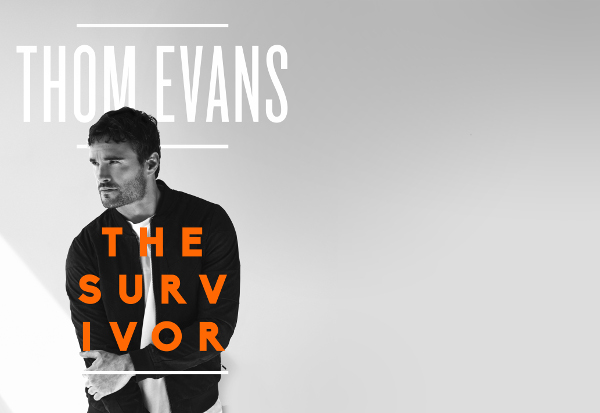
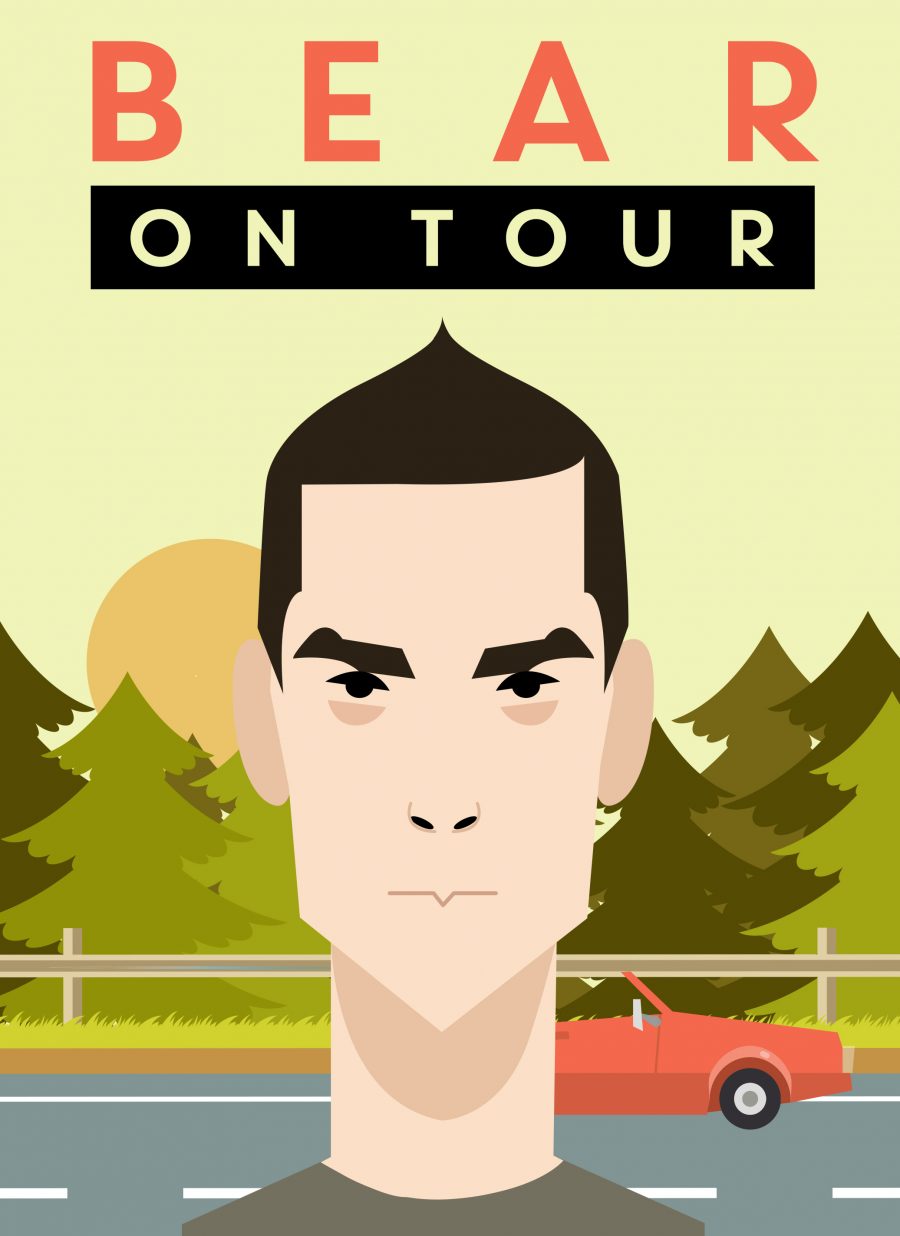
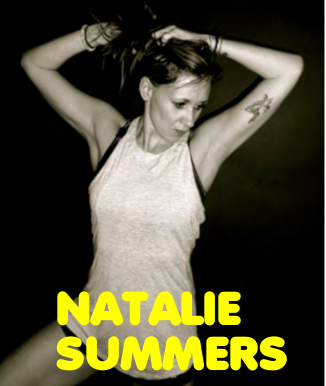
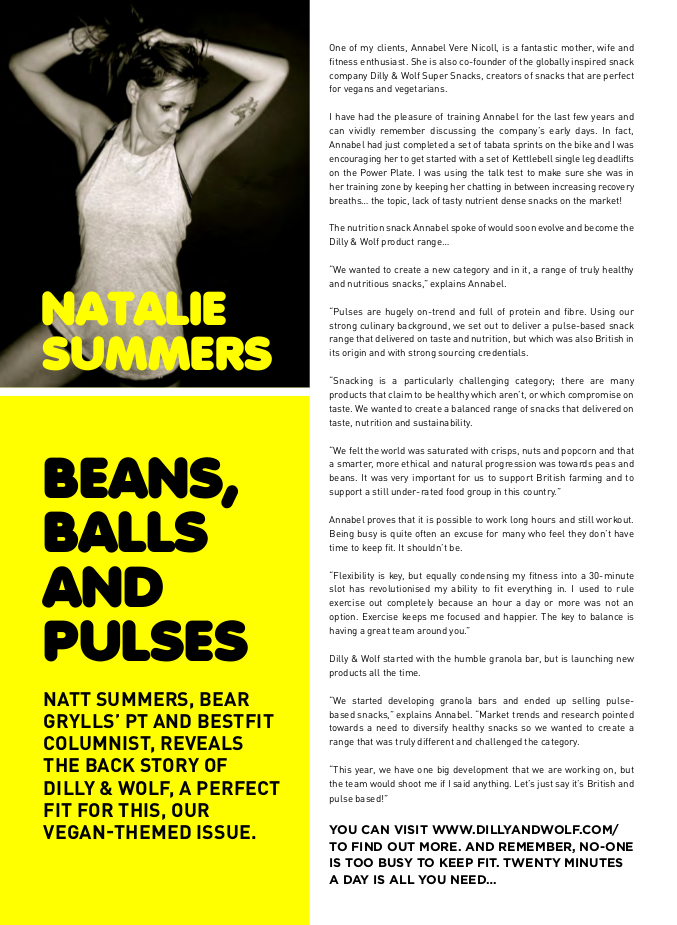
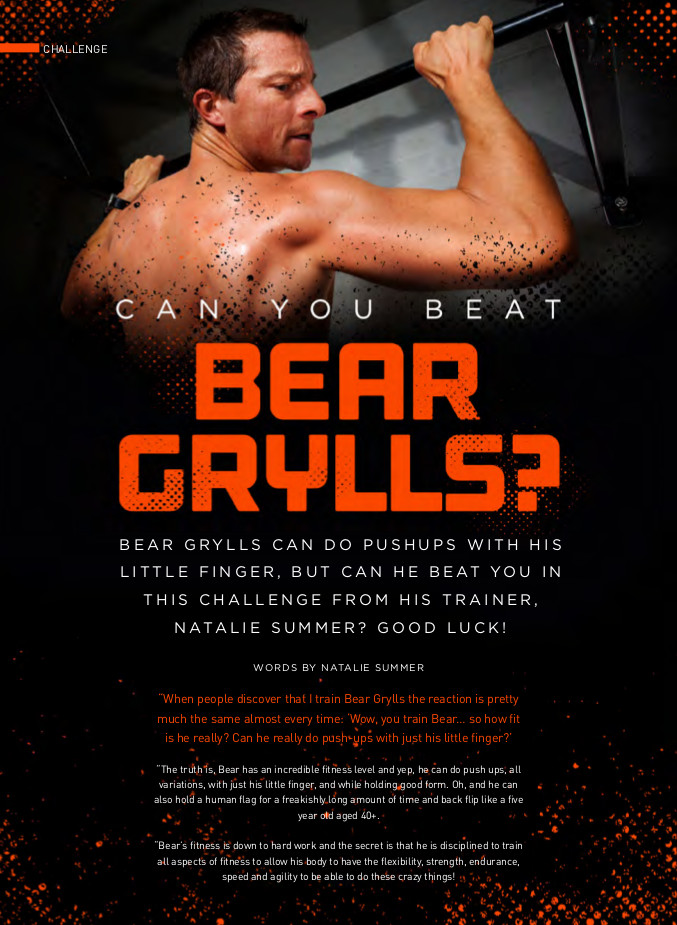












FOLLOW BESTFIT